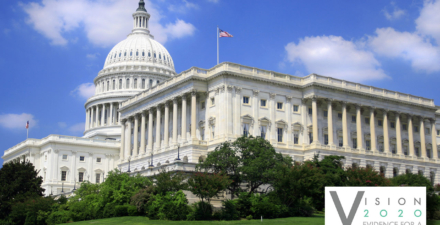Brad DeLong: Worthy reads on equitable growth, November 10–16, 2020
Worthy reads from Equitable Growth:
1. Four pieces from Equitable Growth’s “Vision 2020” initiative are especially worth your attention this week—not because they are the most important but because they are the most doable in the current environment.
The first is “Combating the market power of U.S. corporations over workers and consumers.” The post reads in part: “The United States suffers from a growing market power problem. Market power, often referred to as monopoly power, means consumers pay more for the goods and services they need. Workers earn less. Small businesses have a harder time succeeding. Innovation slows. Market power exacerbates wealth inequality, too, because those who benefit from monopolies—the high-paid executives and stockholders of corporations—are wealthier, on average, than the consumers, workers, and small businesses who bear monopolies’ costs … Antitrust enforcement is typically handled at the federal level by the Federal Trade Commission, the U.S. Department of Justice’s Antitrust Division, and federal courts. It is governed primarily by Congress’ century-old policy direction in the Sherman Act, the Federal Trade Commission Act, and the Clayton Act. The key resources below provide solutions for corralling corporate power through these antitrust enforcement tools.”
The second is “Reforming Unemployment Insurance across the United States.” The post reads in part: “Longstanding problems with the Unemployment Insurance system in the United States are immediately evident amid the coronavirus recession and echo the problems experienced during the Great Recession more than a decade ago. These include: (a) Administrative failures at state Unemployment Insurance agencies. (b) Lack of a permanent Unemployment Insurance program that includes the self-employed and others traditionally left out of the program. (c) Low benefit levels that require emergency top-offs. (d) The temporary nature of fixes when recessions hit, which, in turn, requires renegotiations just months after political compromises are reached. The current disarray in the Unemployment Insurance system is neither a surprise nor an accident. It is the result of decades of conscious choices made by policymakers at the state and federal levels: Over the past decade, many states limited Unemployment Insurance benefits, made accessing the program more difficult, and allocated insufficient funds for program administration. This results in chaos and uncertainty just when Unemployment Insurance is critical.”
The third is “Revamping U.S. Small business rescue programs amid the coronavirus recession.” The post reads in part: “Heading into 2021, policymakers should prioritize restructuring business aid so that small firms can be rescued with the same speed as large firms. The Paycheck Protection Program should be altered to help firms in high-rent areas, firms that are smaller and less well-connected to the banking system, and firms owned by Black and Latinx entrepreneurs. Longer term, policymakers should build public financial systems to make our economy resilient for the next downturn, including: (a) Increasing the capacity of the Small Business Administration. (b) Building a faster payment system. (c) Ensuring universal access to the banking system. (d) Creating established alternatives to ad hoc business rescue programs via the Federal Reserve.”
The fourth is “Building worker power in the United States.” The post reads in part: “Labor market policies, such as minimum wages or premium pay amid the coronavirus pandemic, are not keeping up. Meanwhile, labor laws meant to protect collective action and unionization efforts, guarantee freedom from discrimination, and promote workplace safety are not well-enforced. Furthermore, trends such as domestic and international outsourcing and the fissuring of the workplace are changing the U.S. economy in ways our labor market institutions were not built to handle. These trends unbalance power between workers and corporations so that workers are not able to share in the high profits they create and the economic growth they drive.”
Worthy reads not from Equitable Growth:
1. I think Tim Duy here overlooks the next year. Lots more damage will be done to the U.S. economy and the society over the next two months of the interregnum. Then there remains at least a six-month gap before large-scale vaccine distribution is likely to begin. The Biden economy is likely to have a great 2022, and a good 2023 and 2024. But the next year will be hellish. Duy is, I think, very overoptimistic in overlooking that. Read his “Economy Has Momentum, But So Does the Virus,” in which he writes: “[President-elect] Biden might have been dealt something of a lucky hand with respect to the economy. As a general rule, it is much better to have the recession at the front end of your administration than the back end. Even though he will likely face a recalcitrant Senate, do not mistake the current situation for the last recovery. A vast stockpile of savings is sitting in the background to fuel the economy next year, giving Biden a massive economic tailwind. Moreover, there was nothing wrong with the economy at the beginning of the year; there were no structural problems that needed to be fixed. Biden also has the opportunity to ride the downside of the current Covid-19 surge and the upside of the coming vaccine. And he has a Fed that has already committed to holding rates zero; President Obama had a Fed that was always looking to unwind. Looking past the current Covid-surge, there is a lot to like here.”
2. Freedom of speech, freedom of association, freedom of non-association, rights to equal respect in the public sphere, and rights to economic advantage and security all mix together in a strange public-sphere debate chopped salad. I confess I have not thought all these issues through satisfactorily. Read Steve Randy Waldmann, “Social democracy and freedom,” in which he writes: “In 1962, Milton Friedman famously argued that liberal capitalism and political freedom go together [:] … “Viewed as a means to the end of political freedom, economic arrangements are important because of their effect on the concentration or dispersion of power. The kind of economic organization that provides economic freedom directly, namely, competitive capitalism, also promotes political freedom because it separates economic power from political power and in this way enables the one to offset the other…” Capitalism and Freedom was written in the heyday of the Kuznets curve, which posited that extreme inequality was self-correcting and had largely already self-corrected … Friedman celebrated moderate inequality, on the theory that a world with many captains of industry would have many and diverse philanthropists to whom partisans of unpopular causes could make their case and find sponsorship. The logic of the argument rests on the notion that capitalism preserves political diversity that cuts across the structure of wealth and power … There is an obvious critique of this from the left. Political diversity won’t cut across structures of wealth and power evenly … There’s lots more scope to make a living at Mercatus than at People’s Policy Project, for partisans willing to adjust their politics accordingly. Capitalism, then, buys the appearance of political diversity (every voice is in the room!), but puts a fat thumb on the scale for the interests of the wealthy and powerful.”



